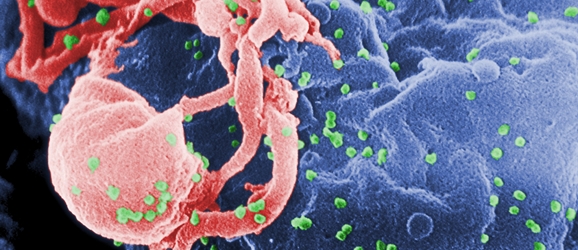HIV Functionallly Cured In 14 Adults Thanks To Early Treatments
This article is more than 2 years old

The world recently looked up and said, “Whoa,” as the medical field announced the first ever child to be “functionally cured” of the HIV virus. The hope for the virus’ eventual eradication skyrocketed. I can’t imagine how well received this news is going to be.
According to an article in New Scientist, 14 adults have now been “cured” of HIV, and while it isn’t the end-all, be-all of medical miracles, but it’s further proof that the earlier the virus is treated, the better. That seems like an obvious piece of advice, but the majority of those suffering don’t know they’re infected until after the virus is well into its cell destruction. Beyond that, the drugs aren’t guaranteed to work on all adults, so there still won’t be a universally applicable treatment for quite some time. However, it did work on some of them, and that’s pretty fucking amazing.
Years ago, Asier Sáez-Cirión of the Pasteur Institute’s unit for regulation of retroviral infections in Paris headed a study that analysed 70 patients with HIV who were treated with antiretroviral drugs (ARVs) early on in their diagnosis — between 36 days and 10 weeks after the infection began. For one reason or another — personal choice or drug protocol changes, to name a few — all 70 of those studied had their drug treatments interrupted. When that happened, most of them relapsed and the virus quickly bounced back to pre-treatment levels.
But for the four women and 10 men, the medicine was no longer needed, as the traces of HIV in their bloodstream had dropped to such low levels that the immune system was able to neutralize the infection without drugs. One of them has gone 10 and a half years without medication, while the average number of medicine-free years for each person has been seven years. Though it’s unknown why the treatment didn’t work on everyone, it’s obvious the common denominator here was getting into the treatment early on.
“There are three benefits to early treatment,” explains Sáez-Cirión. “It limits the reservoir of HIV that can persist, limits the diversity of the virus and preserves the immune response to the virus that keeps it in check.” This, of course, can never be a failsafe process.
“The big challenge is identifying people very early in their infection,” says Andrew Ball, the World Health Organization’s senior adviser on HIV/AIDS strategy. “There’s a good rationale for being tested early, and the latest results may give some encouragement to do that.” He also added that potential discrimination, as well as the mental stigma of getting tested, will probably always affect early treatments.
You hear that, HIV? That’s the sound of medicine stringing up the bells to sound your death knell. Amend your will, and do let the antiretroviral doorknob destroy your ass on the way out.












